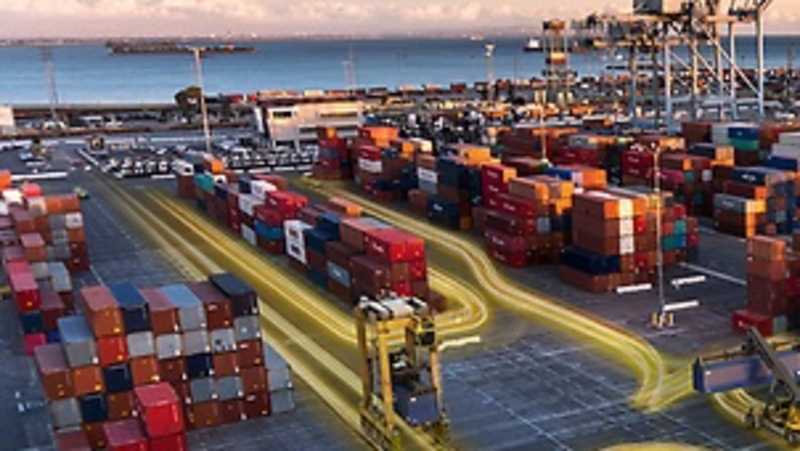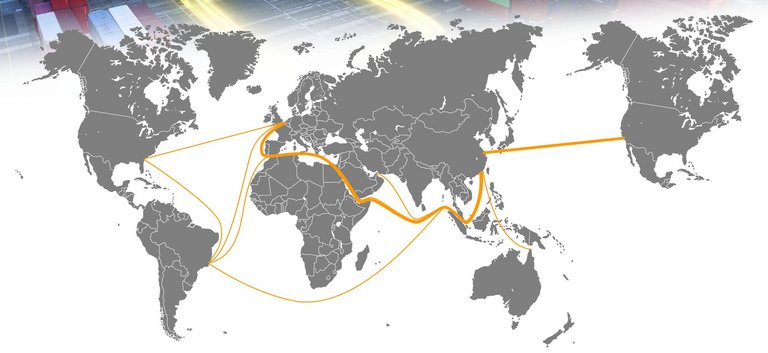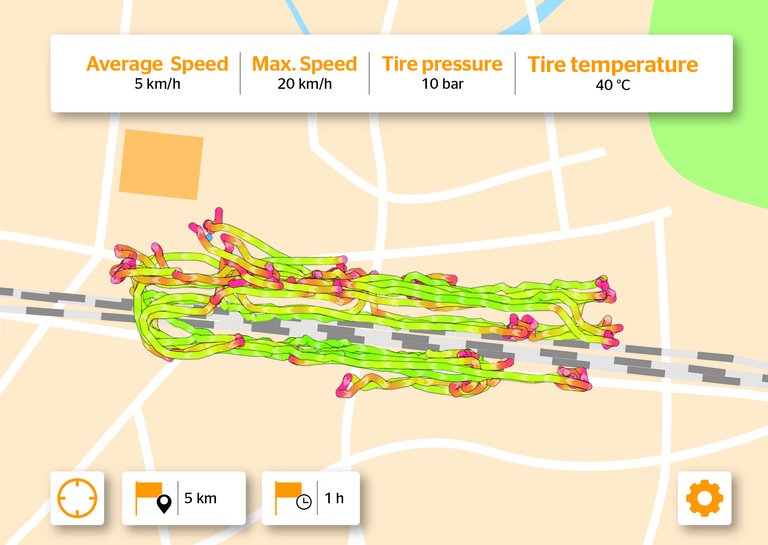Revolutionizing the Port Industry
Continental and the Development of Smart Ports: Revolutionizing the Port Industry Through Intelligent Tire Management
It is not just the massive cranes and gigantic container ships that define the port landscape. A subtle but no less significant change is happening in the background – one that is fundamental in changing the way we transport goods across the seas. The concept of the smart port is no longer a distant idea, but more and more the new norm. It denotes a port facility that uses cutting-edge technologies and data analytics to optimize operations, increase efficiency and reduce environmental effects.
Smart ports are a promise for the future of global logistics, and companies like Continental are actively driving forward their development. The technology company recently described its understanding of the smart port concept. “A smart port uses automated processes and digital technologies to improve its performance, to use its resources more efficiently and to operate more sustainably,” explains Federico Jiménez, head of Port Operation Tires business field in Continental Specialty Tires. Jiménez: “The use of autonomous vehicles at ports is a growing trend. In this dynamic environment, tire technology is playing a key role in the transformation of the port industry. We are seeing maximization of space and increased use of port vehicles, which in turn is leading to increased tire consumption.”

Globalization and heavily used trade routes around the world have been accelerating this development for some time. But since the pandemic, the pressure on container capacity at terminals has increased even further due to supply chain disruption. In response to these challenges, more and more ports are becoming fully automated and digitalized smart ports.
Comprehensive maintenance approach for better flow
“Transforming a traditional port into a smart port is no easy task,” says Teck Seng Chew, product manager for Port Operation Tires in Continental Specialty Tires. “It is a complex process that involves all facets of terminal operation, from big data management to fleet management and even down to each tire on the vehicle.” As one of the leading tire manufacturers, Continental offers a wide range of products for all types of port vehicles that are specifically designed to improve the efficiency and sustainability of vehicle fleets. Its aim is to offer “the best tire for each application, ensuring a better flow in daily operation.” Chew explains: “Machine operating conditions are different for every port, even those with similar setups and equipment.” To determine what is the best tire for the customer’s specific application and supporting terminal operator on the path to smart(er) ports, Continental experts study movement behavior, loading behavior and the corresponding effect on the tires with the help of digital solutions. “On the basis of this data, we provide improvement recommendations beyond just the scope of tires, such as machine movement optimization and good maintenance practice. This enables our customers to run their operation with the lowest total cost of ownership.” It also helps to discover blind spots in daily operation. For the application itself, Continental is able to distinguish between pick and stack or load and carry needs.

From smart tires to smart ports
Continental equips all radial port tires with its new Bluetooth-enabled generation of sensors ex-factory, ready for its ContiConnect 2.0 digital tire management system. The new sensors allow fleet managers and drivers to access tire data for the vehicle directly via any smart device, such as a mobile phone, and transfer it to the web portal. In addition, each tire in the system is assigned a digital twin including the article number. As a result, the fleet manager always knows which tire is on which vehicle and in which wheel position. The tread depth can also be recorded directly in the system. Downtimes can be reduced and processes optimized. Chew: “Soon, we will integrate the tire data into software solutions for a total fleet management system, with our intelligent tires acting as an important link in the smart port’s chain of automated activities. Our vision for the future is close to becoming a reality.” Jiménez adds: “Our goal is to support the transformation of ports by reducing total cost of ownership and environmental effects. With smart tires and our comprehensive approach for digital solutions like ContiConnect 2.0, we are paving the way for a new era of port management.” After all, the smart port may do without people, but it will never do without tires.

Julia Reinhold
Communications Manager Commercial Specialty Tires
Specialty Tires
Continental Tires
- +49 511 938-2570
(Stand: Juni 2023)






